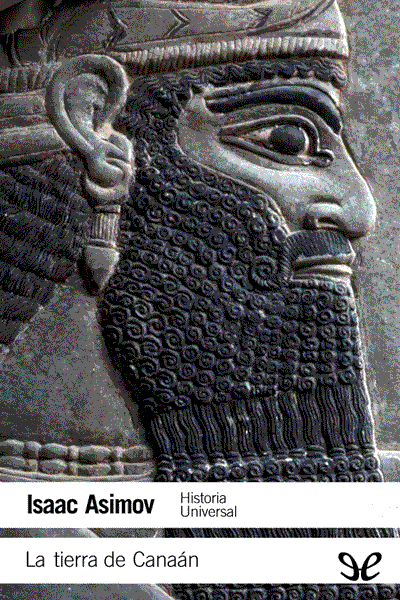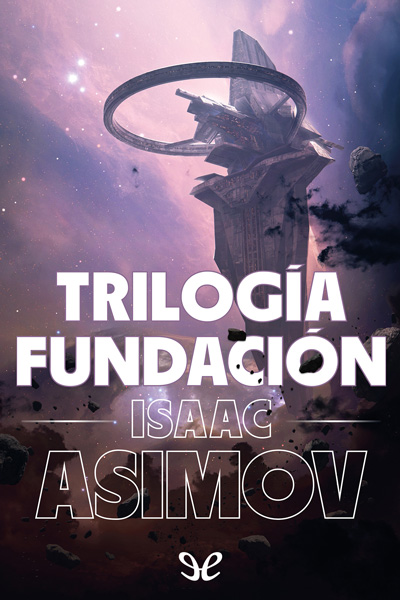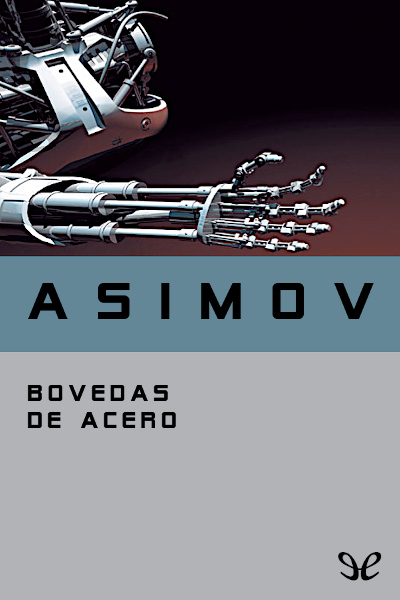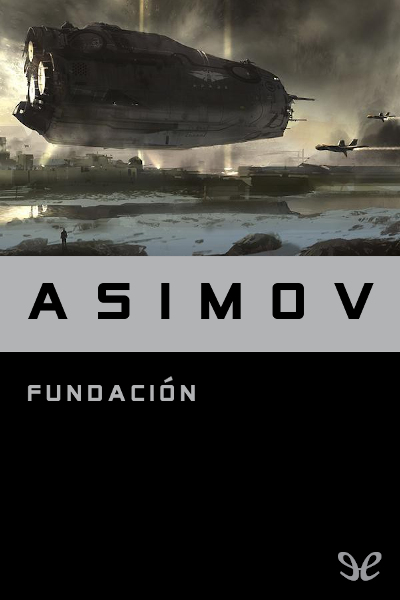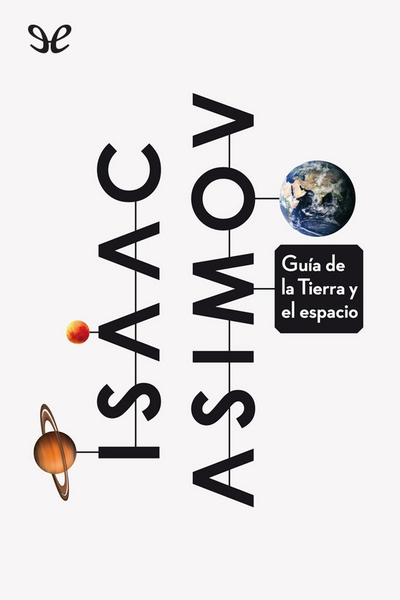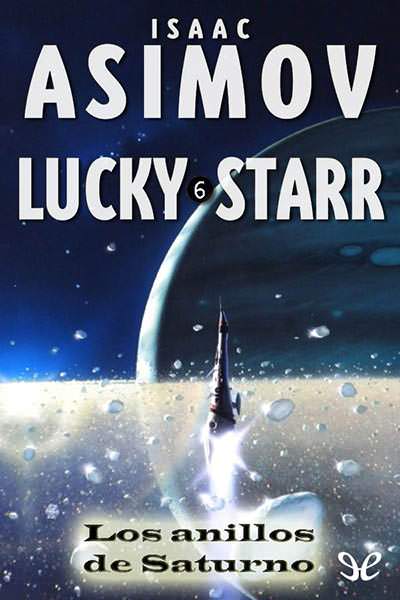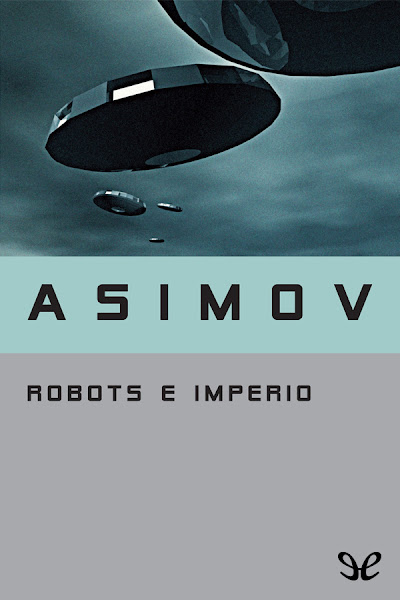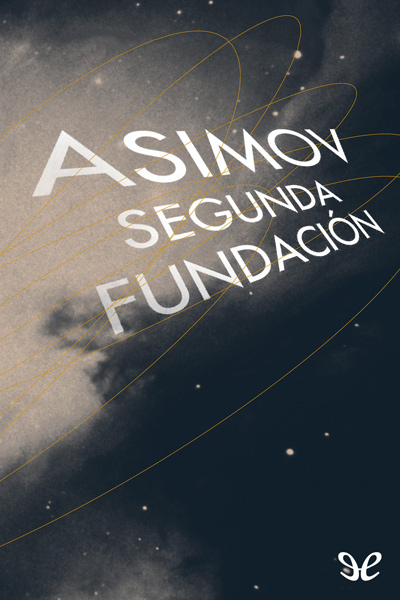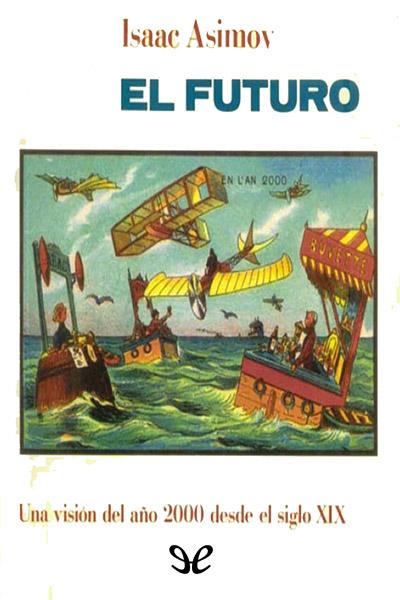oleebook.com
More Soviet Science Fiction de Isaac Asimov
de Isaac Asimov - Género: English
Sinopsis
Isaac Asimov Publisher: Collier Books, Year: 1969
Libros Recomendados - Relacionados
Reseñas Varias sobre este libro
The Heart of the Serpent Ivan Yefremov
Novella. Compare to "To Be Taught, If Fortunate."
Siema Anatoly Dnieprov (aka Dneprov)
Compare to "Murderbot."
The Trial of Tantalus Victor Saparin
Compare to Covid-19.
Stone from the Stars Valentina Zhuravleva
Compare to a certain part of "A Wrinkle in Time."
Six Matches Arkady Strugatsky and Boris Strugatsky
Um, compare to whatever myth of hubris you choose.
The thing is, I can see, that these authors had to work within the political climate. Communism had to be shown as a good thing. Utopia, or at least improved society, were to be depicted as natural outcomes of current USSR programs. But still there's a subtle wink of satire in some, irony too.... These stories are well worth reading.
I would love to find more by any of the authors and have added a couple of other anthologies of Soviet SF to my list because I found them on openlibrary.org.
8 s Zulfiya643 102
Sci-fi is one of the most dated fiction one can find, and only very few stand the test of time. The same is still true about this particular novella as it is epistemologically and technically very dated.
Dated can be explained or accepted, but I also feel that the author fell into the same rut as with its predecessor in the series. Let me elaborate.
The novella was a good choice for that kind of plot - first contact, and it started strongly, and I was quite engaged, and my thoughts literally were,"Well, now, when it is a novella, we might not go into the rabbit hole of communist propaganda, and it might possibly be a fast-paced, engaging story" ... Alas, it did not least long. Right at the turning point of the story, the author segued into pages and pages of political spin that focuses on the supremacy of Communism and communal living. It is obvious that one can not decry everything in this idealistic vision, but most of it nowadays sounds awfully dated.
Another peeve is the concept of physical beauty that somehow rubs me the wrong way. Physical beauty in the evolutionary sense of procreation and passing on genes might be important, but its superiority over the beauty of human spirit and human nature did not go well with me.
I did , though, the concept of life form that was fluorine based. I am not sure how viable it is, but I am also not a xenobiologist, so I would humbly defer to their opinion.
Overall, a promising beginning, but the story followed suit of its predecessor in its structure and axiology.
Now, it is my personal quest to see if the author is able to improve or if the third part in this series replicates the first two.
4 s Manuel AlfonsecaAuthor¬Ý77 books182
ENGLISH: In an environment of interstellar travel and encounters with extraterrestrials, Efremov presents the ideas of Jean Jacques Rousseau in a Soviet communist version: man is good by nature; capitalist society corrupts him; in the future, when Soviet communism will dominate the world, man's innate goodness will come to the surface automatically.
The captain of the interstellar ship falls ill. The second in command must perform a complex maneuver. When he finishes, the captain confesses that his illness was simulated; a collusion with the ship's doctor to provide his subordinate with that experience. How good they all are!
The crew members ask themselves the following question: What are we doing here, so far from Earth, which Soviet communism has turned into a paradise? Aren't we wasting our time, when we could be happy there? (Please!)
There are some funny scientific mistakes, such as assuming that matter and antimatter gravitationally repel each other (in fact they attract). In summary: This novella is a communist political pamphlet, disguised as science fiction. And the aliens are so good, that they are undoubtedly also of Soviet communism.
In short, this novella is, at times, a philo-communist political pamphlet disguised as science fiction, although not as much as The Andromeda Nebula, by the same author. And the part about the encounter with aliens is quite good, although I personally better other novels in the same sub-genre, such as Project Hail Mary.
ESPAÑOL: En un entorno de viajes interestelares y encuentros con extraterrestres, Efremov nos presenta aquí las ideas de Jean Jacques Rousseau en versión comunista soviética: el hombre es bueno por naturaleza; la sociedad (capitalista) le corrompe; en el futuro, cuando el comunismo soviético domine el mundo, la bondad innata del hombre saldrá automáticamente a la superficie.
El capitán de la nave interestelar se pone enfermo. El segundo de a bordo tiene que realizar una maniobra compleja. Cuando la termina, el capitán confiesa que su enfermedad fue falsa; un contubernio con el médico de a bordo para proporcionar esa experiencia a su subordinado. ¡Qué buenos son todos!
Los tripulantes se plantean la siguiente pregunta: ¿Qué hacemos aquí, tan lejos de la Tierra, a la que el comunismo soviético ha convertido en un paraíso? ¿No estamos perdiendo el tiempo, cuando allí podríamos ser felices? (¡Por favor!)
Hay algún error científico divertido, como el suponer que materia y antimateria se repelen gravitatoriamente (se atraen). Y los extraterrestres son tan buenos, que sin duda son también adeptos al comunismo soviético.
En resumen, esta novela corta es, a veces, un panfleto político filocomunista, disfrazado de ciencia-ficción. No tanto como La nebulosa de Andrómeda, del mismo autor. Y la parte del encuentro con extraterrestres está bastante bien, aunque personalmente me gustan más otras obras en la misma línea, como por ejemplo, Project Hail Mary.
3 s Roddy Williams862 38
Contents:-
The Heart of The Serpent – Ivan Yefremov (1959)
Siema - Anatoly Dnieprov (1958)
The Trial of Tantalus – Victor Separin
Stone from The Stars - Valentina Zhuravleva (1959)
The Six Matches - Arkady and Boris Strugatsky (1962)
Professor Ivan Yefremov (born 1907) is well known both as a tireless fossil hunter and a talented science fiction writer. His fantasy ranges between the mysteries of times long bygone and the distant future. His novels include ‘The Land of Foam’, where the scene is set in Ancient Egypt and Greece, and the world-renowned ‘Andromeda’ in which his fantasy roams two thousand years ahead.
‘The Heart of The Serpent’, given in this volume, was written in 1959. Its subject is related to that of ‘Andromeda’.
Anatoly Dnieprov (born 1919), the author of ‘Siema, which he wrote in 1958, is a distinguished physicist who works at an institute of the USSR Academy of Sciences. His first book appeared in 1946. His favourite subject is cybernetics – its amazing achievements to date and its breathtaking potentialities. Scientific authenticity is a salient feature of his writings.
Victor Separin (born 1905), a journalist by profession, is editor of the Soviet popular geographic magazine ‘Around The World’. His fiction, which treats of present day scientific and technical problems, is amazingly realistic. In this volume he is represented by ‘The Trial of Tantalus’, a story dealing with prospects of microbiology.
Arkady and Boris Strugatsky, authors of ‘The Six Matches’, are frequent contributors to Soviet popular science periodicals. Few readers know, however, that the two brothers are not professional writers. Boris Strugatsky (born 1933) is an astronomer and works at the computer laboratory of Pulknovo Observatory. Arkady (born 1925) is a linguist and translator specialising in Japanese.
Valentina Zhuravleva (born 1933) is a comparatively recent graduate of the Azerbaijan Medical Institute. She was probably prompted to try her hand at scientific fiction by the almost fantastic possibilities offering in the field of medicine. The bold flights of fancy in her scientific thinking make her stories particularly noteworthy. Bio-automation is the theme of her ‘Stone from the Stars’ written in 1959, and included in this volume.’
Blurb from the 2002 Fredonia Books paperback edition
Sadly, my copy of this very interesting collection is lacking the previous publication details, apart from some brief notes in the back cover blurb, although it would appear that the stories in this volume come the fifties or sixties and were presumably originally published in the Soviet Union of the time.
It would appear that Soviet SF writers mirror their Western counterparts in often being working scientists, which seems to be the case with some of the writers here.
The Heart of The Serpent – Ivan Yefremov (1959)
This, the longest story in this volume, is presumably a Soviet response to the famous SF story ‘First Contact’ which indeed is mentioned within the story.
A group of representatives from the now ‘classless’ world society of Earth have travelled to the constellation known to ancient Arabia as ‘The Serpent’ on a scientific mission. They encounter an alien vessel and manage to communicate with the alien crew. (It is here the Captain points out that the original SF story ‘First Contact’ had a crew with a very capitalistic suspicion about the motives of the aliens)
The Captain is also rather scathing about something of which many SF writers – but mainly Americans – are guilty today, and that is positing a future in which interstellar culture is mainly American, or at least Western.
The alien crew are from a fluoride world (these are rare in the galaxy) and are sad that the two races can never share the same atmosphere, although the Soviets suggest that perhaps they could be genetically redesigned in order to join the humans and other races on oxygen-based worlds some time in the future.
It’s an interesting tale, despite a complete lack of suspense or plot, and at least has the benefit of scientific accuracy and the lihood of social change in the near future.
Siema - Anatoly Dnieprov (1958)
The narrator, on a long train journey, has his peace invaded by a man in pyjamas who wishes to share his carriage.
At first annoyed, and then intrigued, he is prompted to question the pyjamaed man, who then tells a tale of how he designed a thinking machine, Siema, a female thinking machine at that.
The science, for its time, is very credible, and the denouement quite interesting, since the reader is left to decide whether the man in pyjamas was telling the truth or simply mad.
The Trial of Tantalus – Victor Separin
An ecological tale which espouses the role of viruses in the ecosystem and their positive and negative benefits. An agricultural researcher is trying to determine the origin of the Tantalus virus which has suddenly attacked both sugar cane crops and caused the deaths of a number of African elephants after they ate infected reeds. the story also contains the interesting concept of a virus museum, postulating that viruses should be imprisoned and studied, rather than destroyed.
Stone from The Stars - Valentina Zhuravleva (1959)
An asteroid which crashed high on a mountain slope is found not to be an asteroid at all but a cylindrical ship. Upon hearing knocking from within, scientists open it to find that its operating system is a living brain.
It’s an odd tale which ends up with a sense of bittersweet futility, since the scientists cannot communicate with the now dying brain or work quickly enough to duplicate the mechanisms to keep it alive. It is therefore left undiscovered whether the brain was a sentient life-form or merely an organic machine.
The Six Matches - Arkady and Boris Strugatsky (1962)
An inspector is sent to a research institute to discover the details behind an accident which left a senior professor in a coma.
It was known that the professor was investigating the effects of directing streams of neutrinos at various areas of the brain, and had lately been exhibiting strange feats of memory and performing party tricks by moving small objects about without touching them and extinguishing matches at a distance.
As is usual for the Strugatskys the piece is well written and characterised and obliquely says much about the scientific community of the time and their relationship with the authorities.
What all these stories have in common is that there is, from a Western perspective, a sense of incompleteness about them, as if something has been lost in translation although conversely one would argue that there is a subtle poetic element to most of them.
Yefremov’s ‘Heart of The Serpent’ is certainly very unsubtle in its ideological tub-thumping and its not very thinly-veiled attack on the Capitalist Nations of the world.communism first-contact soviet-sf3 s Benjamin1,247 20 Read
This book may have been given to me as a joke, but I read it in earnest, which seems the best way to read this book. Reading older science fiction is often an exercise in sympathy, even moreso than when reading older non-sf lit because of the evolution of scientific theories; "well, yes," you have to say, "clearly we don't believe this theory to be an accurate representation of the world now, so this isn't the question we would ask, but at the time, I can see how this would be a serious question."
The works in question here are not that old, but they are couched in a "scientific" view of history that we (mostly) no longer hold: that human labor is our most precious resource and that correct application of this labor will enable us to communally harness all the natural forces and take our place among (and as brothers to) the stars. (If that sounds an eschatological dream, there's a reason for that: beyond a certain point in the future, Soviet theory has no vision of history. In contemporary SF, we call that point the Singularity.)
So, while these stories run through some typical sf tropes--first contact with aliens, the invention of artificial intelligence/life, tracking down a mysterious illness, the development of psychic powers--what's common and most notable about them is that the info-dumps are mostly humanitarian. That is, whereas the "You know, Bob" speeches often tell the reader the scientific issues at stake/made-up for convenience--"You know, Bob, the pan-galactic gargle-blaster is the best ice-breaker"--in these stories, when the characters/the narrator break character to tell the reader something, the something that we need to know is usually that humans are the goal of the world and that human forces are always on the verge of moving us forward.
Asimov's introduction notices this Utopian bent to these stories, and goes on to argue that we should believe that these are true stories that are not being produced only to fool us--that the Soviets really want peace. Again, that may not be an interesting issue in our day, but in '62, I can see why Asimov would've considered that issue earnestly.
Ivan Yefremov, "The Heart of the Serpent" (1959)
Anatoly Dnieprov, "Siema" (1958)
Victor Saparin, "The Trial of Tantalus" (1959)
Valentina Zhuravleva, "Stone from the Stars" (1960)
Arkady and Boris Strugatsky, "Six Matches" (1959)bedside-reading3 s Jeff147 9
The Introduction by Asimov alone is worth the entire book. In trying to compare Soviet science fiction to American, Asimov proposes a three part time-line to the genre: 1) Science Fiction as Grand Adventure; 2)Science Fiction as a discourse on Technology; 3) Science Fiction as a sociological discourse. He then breaks these thirds into three parts - "gambits" - each (What If stories, If Only stories, and If This Goes On stories) and even shows how some American and Soviet/Russian sci-fi blends different parts and gambits of the time-line.
His explanation is quite conversational and easy to understand. Never thought of sci-fi in such an evolutionary/chronological way before! Fascinating!science-fiction2 s Celeste45 3
Kind of a bland collection, but not surprising considering who compiled it. Even the Strugatsky brothers' story was less interesting than others I've found in other collections. Most of the stories were much more concerned about describing the science than telling a good tale. Not that that's really a bad thing, but it gets a little boring. Still wishing someone would publish an English collection of Strugatsky short stories...anthology speculative2 s ???? ??????144 3
? ???????????? ?????? ??????? ??????? ?? ???? ???????? ? ??????? "????? ???????" (?????? ?????????? ?????? ?? ??? ??????). ?????? ??????, ? ????? ???????????? ?? ????? ??????, ?? ??????? ??????? ?? ?????? ?????? - ????????????? ?? ???????? ??-??????? ?? ???????? ????? ?? ??????? ???????? ? ????????? ?????????? ???????? ??????? "?? ???? ?? ?? ?????????!" ?????????? ??????? ???? ?? ???? ???? ???????, ?? ???????????? ?????? ????? ??????????? ????????. ?????? ?????? ????? 3,5*.??????????-?????????2 s Tomika118 1 follower
Interesting point of view how the writer imagined the first contact between human kind and the aliens. Luckily it was a positive way!!1 Oreon147
?????, ?? ???? ????? ? ????, ??? ??: ?, ????? ?? ????? ???????????? ????? ??????????? ? ?????????? ?????????! ???? ???, ???? ???, ? ??????? ??? ??? ???! ??????? ??????? ????? ??? ???? ???????, ?? ??????, ???? ?????? ?????????? ????????????? ? ?????? ???????? ?????? ??????????? ????, ????????? ??? ??, ??? ???, ??? ??... ?????? ?? ???? ? ???? ??????????? ?? ?????????, ???????????? ?? ???? ?????????? ?? ? ??????? ?? ? ?????? ???????? ? ???????, ??????? ?????. ????????? ????????? ?????? ? ??????? ????? ??? ???????, ??????? ???? ????? ?? ??????? ? ????? ?????????, ?????? ? ? ??????????? ??? ??????? ?? ?????????, ???? ?????? ???? ????????? ?????? ?????????
?? ????, ??? ????????. ???? ????? ??? ?????, ??????, ????????? ? ??????? ???? ??? ??????, ?? ? ???? ???????? ??????????? ? ?????? ??????? ???????? ?? ???! ???, ??????? ?? ????? ?? ??????? ??????, ?? ???? ?????????? ? ???????, ?? ?????? ?????. ????? ? ????-????? ????, ?????????? ???????? ????? ???, ??? ???? ??? ???????? ?????, ??? ???????, ?? ??? ????? ????????????? ?????????. ????? ? ?????? ? ?????? ?? ?????? ???????. ?, ?? ??? ?????, ?? ??????? ???? ?????? ?? ????? ????????, ??? ????? ????????? ?????? ??????? ? ????????? ?????? ? ????? ????? ???????? ??????. ? ???? ? ????????? ????? ???? ? ????????, ? ??????????? ???????, ? ?????????? ?? ?????????? (?????? ???? ??????? ????????, «??????????» ?? ?????? ????????); ?????????? ???????????? ??? ??? ???????? ?????? ????? ? ??? ????????, ? ?? ???????? ???????, ?????????? ??? ? ??? ???????? ?????????. ??????????, ???????? ????????????, ????? ??????? ?? ???????? ?? ????????, ? ??????? ?? ???? ?????? ? ??????? ??????????? ????? ?????????? ???? ??????????; ?????? ???? ??? ????? ? ??? ?????? ????????????? ???. ???????? ?? ?? ??? ??? ? ????????? ?? ????? ????, ?? ? ???? ?? ????????. ??? ? ? ???????? ??? ????? ??????? ????? ?? ?????? ?????? ? ???? «??? ?????????? ? ????????? ???????????», ??? ????? ???????? ?????? ????????????. ?? ????? ???? ? ?????? ????????? ???? ??????? ??????? ? ????????? ????????? ???????????? (????????????) ? ?????????? ?????????, ?? ?????? ?????????? ??????????? ?? ????????? ? ??????? ?????? ?? ???. ??? ????? ???????? ????? ???????? ??? ???????? :).
????????? ???? ?? ????? (???? ?? ???????), ??? ?????? ???????? ?? ??????? ??? ??? ????? ?? ?????????, ???? ???? ??????????? ??????????? ??? ????? ?????? ? ?????????????, ??? ???? ??????, ?? ? ????? ????? ???? ???? ????????????? ??? ???????, ??? ??????????? ?? ????? ?? ?????????? ??????????? ??????. ?? ????, ???? ?????? ??????? ??????? ?????? ?????? ???????? ?????? ??????? ????????? ???????, ?? ? ???? ??????? ??????? ???????, ?? ?? ????????? ???????? ? ?? ??????????? ????????, ?? ???? ???????, ???? ??????? ? ?????? ??????? ????????, ? ????? ????????? ??????????? ?????????????, ?? ??? ?? ???????? ??? ???????? ?????? ??????????...
?? ? ?? ????????? ???????, ?? ???????? ??????????? ????????? ? ?????????? ??????? ? «?'????? ?????? ?????????? ????», ??????? «?? ?????????? ?????? ?????? ??????? ??????? ???? ??????????? ????????? ? ????? ??????? ?????» (?????, ???? ??????? ?????? ??? ??? ? ???? ? ??????, ? ?? ?????'????
Autor del comentario:
=================================
